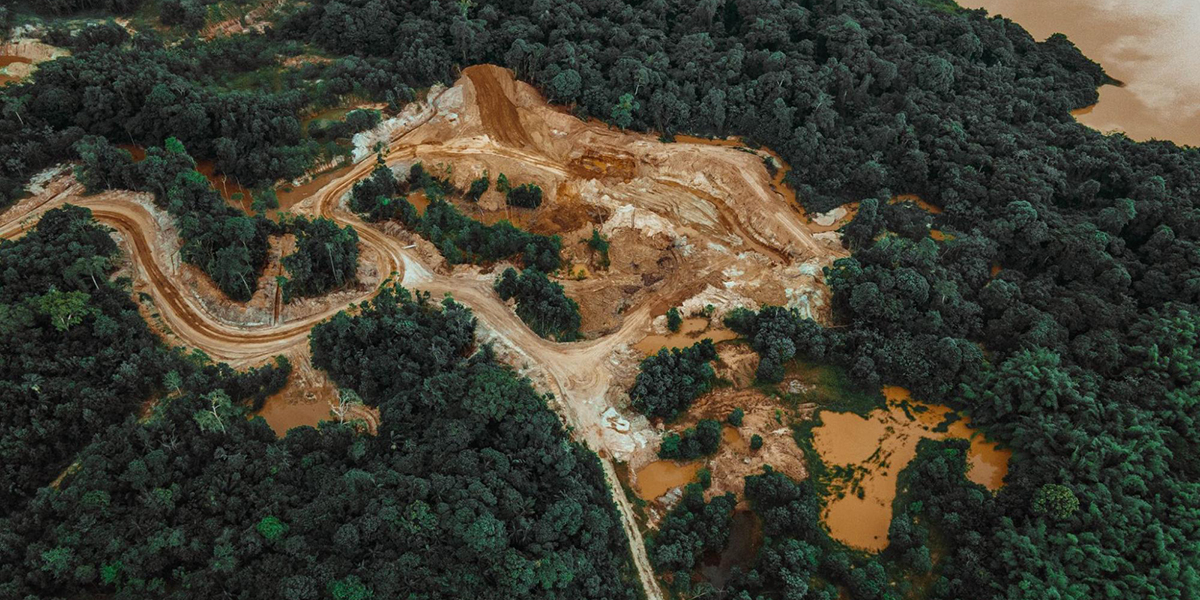The Story of Reforestation in Costa Rica

These days, Costa Rica is known for its dedication to eco-friendly practices, sustainability, and conservation. Countless organizations are dedicated to learning the best ways to conserve and protect the country’s natural resources and then taking it one step further and returning them to their former glory.But this inspiring and heartwarming story of Costa Rican dedication began with a sad beginning. There was a time when the country was less in tune with the needs of Mother Nature when it was more common to exploit the resources that were readily available for financial stability. Of course, at the time, the impact that this behavior would have on the delicate ecosystems wasn’t widely understood, so the unchecked logging of the 1940s had a devastating effect on the rainforest. By the 1980s, almost ⅔ of Costa Rica’s was lost to deforestation.
It was common practice for many countries around the globe to harvest large tracts of lumber for export, and Costa Rica was no different. The difference began when they realized how their actions were affecting their world and the creatures they shared it with. While many governments consider this an acceptable cost of doing business, there were two aspects of the Costa Rican mentality that helped turn the tide.
First, at the center of Costa Rican culture is an understanding that all life is important. All creatures have a part to play and therefore must be protected.
Second, Costa Rica has been a major innovator in terms of long-term national thinking, starting back with the abolition of the country’s military (and the direction of those funds into education, energy, and social services). Even in the early days of a global understanding that the value of forests was far more than the lumber they produced, Costa Rica was ready to make a change. Drastic measures were put into place, not only to protect the forest that remained but to find ways to revive the devastated forests.
A New Beginning
The first step was to make it illegal for anyone to clear forests without permission. Then they instituted a campaign designed to incentivize the general public and get them involved in the welfare of the forests.
.jpg?width=800&height=480&name=Monteverde%20Costa%20Rica%20(2).jpg)
In 1997, Costa Rica instituted the Payments for Ecological Services Program (PES), an idea that not only helped the forests but also boosted the economy by providing a better quality of life to the populace. It is estimated that between 1997 and 2019, over 18,000 families have benefited from the program
Thanks to the PES, the total amount of forest-covered land area in Costa Rica went from 2.1 million hectares in 1986 to 2.45 million hectares in 2005. That’s 48% of the country’s total land area! This increase in forest area is estimated to have prevented 11 million tons of carbon emissions between 1999-2005.
That’s a staggering amount of progress in a relatively short time. The PES Program worked so well that in 2021 Costa Rica won its first-ever Earthshot Prize. From that time to this, the country has moved steadily to the forefront of the global push for not only reforestation but also for the mass implementation of sustainable practices and conservational efforts. As of 2016, the State of the World’s Forests (SOFO) has recorded a 54% increase in protected forests.
What are Environmental Services?
As we mentioned above, much of the progress that has been made depends on the general public, and their involvement was, in large part, due to the incentives offered by the government for environmental services.
.jpg?width=800&height=480&name=Costa%20Rica%20(3).jpg)
So what exactly is an environmental service? Costa Rica recognizes 4 things that contribute to the well-being of the forests and forest plantations. Residents can generate an income by:
-
Mitigating greenhouse gases (fixation, reduction, and storage of CO2),
-
Protecting water resources,
-
Protecting biodiversity,
-
Protecting scenic beauty.
And in doing so, individuals all across the country are activated to take action to protect their local environment.
How Education Plays a Role
One of the best ways to convince people to get involved with reforestation and conservation efforts is to help them understand why it is so important for the welfare of the planet — and by extension, for them.
Lots of studies have been done over the years to understand the vital part that trees play in the world’s ecosystem and this is just some of what we know:
-
Trees take the carbon that we breathe out and convert it into oxygen which is then released into the air… not only does this help us breathe, but it reduces greenhouse gas emissions and helps prevent global warming.
-
Within large forested areas, trees trap other elements that are harmful to our health, like dust, pollen, smoke, and ash.
-
Trees are an essential part of the water cycle, helping to control and manage the supply of water and prevent soil erosion
-
They provide a habitat and food source to a wide variety of creatures, supporting the biodiversity of our ecosystems
-
Trees reduce the thermal island effect which occurs in urban settings. By planting trees we can reduce the heat retention that results when masses of concrete absorb the heat of the sun.
Studies show that a single tree can generate the same cooling effect as 10 air conditioning units working together, and can reduce particulates in the air (such as pollen, and dust) by 7-24%, so imagine what an entire forest can do!
Here in Monteverde, there are several organizations dedicated to educating the public about conservation, reforestation, and sustainability. Click here to learn more.
How All of Us Can Help
One of the beautiful things about our planet is how interconnected everything is. No matter where in the world we plant a tree, the benefits of its growth affect the planet as a whole. So if every person plants just one tree, that would mean 8 billion new trees!
.jpg?width=800&height=480&name=Monteverde%20Costa%20Rica%20(5).jpg)
While the tree is growing, it contributes to our health, the air quality of the world, the temperature of the surrounding area, and the ecosystem in which it was planted. When its lifecycle is complete, it provides fuel, building materials, and nutrients for the soil through decomposition.
There really is no downside.
If you don’t have a way to plant your own tree, there are lots of organizations that will do it for you. Here are some of the ones here in Costa Rica:
-
The Monteverde Conservation League has helped to create the Children’s Eternal Rainforest which is the largest private reserve in Costa Rica (which spans 54,000 hectares) where guests can explore 3.3 km of trails, and learn about the local flora and fauna. They can also visit the Children’s Nature Center in La Tigre de San Carlos, or get off the beaten path (literally) and stay at the Poco Sol Station where you can enjoy guided hikes, talks, and workshops.
-
The Monteverde Institute’s Reforestation Program offers several ways to donate to their many reforestation and conservation efforts in the area.
If you prefer a more global approach, you can visit:
-
One Tree Planted is a non-profit organization dedicated to global reforestation.
-
Tree-Nation has planted 33 million trees since 2006 and offers both citizens and corporations on 5 continents the ability to offset their carbon emissions through reforestation.
-
The Canopy Project is part of Earthday.org’s campaign to reforest areas that are most in need of rehabilitation, such as the arid nations of Africa, or areas that have been devastated by natural disasters that decimate natural habitats. For as little as $1 they will plant a tree on your behalf.
-
Tree Canada is working to ensure that trees are planted in both urban and rural areas to promote healthier and greener communities in every province.
-
The National Forest Foundation (USA) will also plant a tree for a $1 donation.
The Bottom Line
What it comes down to really, is that the health of our planet depends on the health of our forests, and our health as a species (as well as the health of thousands of other species) depends on the health of the planet.

All life on Earth is symbiotic, and as we begin to gain a better understanding and appreciation for this fact, the need to live in concert with the nature around us will lead us to create new habits, and more sustainable and conscientious practices.
In the cyclical nature of life, this in turn will lead us to healthier and happier lifestyles, so it really is a win-win.
-1.jpg?width=800&height=480&name=Monteverde%20Costa%20Rica%20(1)-1.jpg)
If you would like to come to Costa Rica and explore the majesty of our forests for yourself, or learn more about the world around us, just click here. Our staff is always happy to help you plan the perfect Monteverde vacation.




.jpg)
